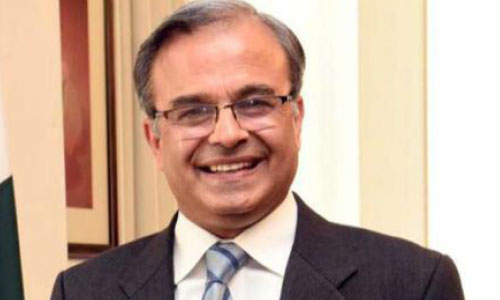India and Pakistan have had historic odds and hostility which resulted in several wars, conflicts, and military standoffs against each and other. The roots of the continued conflicts are complicated but have centered mainly on the earthly paradise state of Jammu and Kashmir. After the 1947 partition of India, the newly-formed independent states of Pakistan and India squabbled over it, which led to the Indo-Pakistani War of 1947-1948 and a subsequent sharing of the state. The settlement was non-agreeable to both the parties and since then, this had become an ongoing intractable issue leading to a war in 1965.The nations also partook in another war in 1971 which led to the formation of Bangladesh. Both countries developed nuclear weapons in the 1990s and this had a sobering effect on the next major conflict – the 1999 Kargil War.
In 2019, this is the second time that the tension intensified between the two countries; the first tension increased when a suicide car bombing carried out on 14 February 2019 in which 40 Indian security personnel were killed. A Pakistan-based militant group, Jaishe-e-Mohammad claimed responsibility for the attack. India blamed Pakistan for the bombing and promised a robust response. India has regularly accused Pakistan of utilizing militants to destabilize Indian-administered Kashmir. Pakistan, however, denied any involvement in the bombing. As a result, some two weeks later, India and Pakistan conducted airstrikes against targets in each other’s territory.
The latest tension intensified in recent days when India announced the decision to revoke a bill which granted special status to the semi-autonomous state of Jammu and Kashmir, meaning it will be controlled by the Indian central government. The move strains already fragile relations between India and Pakistan, as both countries lay claim to the territory, and Pakistani politicians have condemned the action and warned of consequences. This issue caused a lot of concerns in Afghanistan as it may cast a dark shadow on the future of Taliban peace talks with Afghan government.
According to Pakistani Foreign Minister Shah Mehmood Qureshi and other Pakistani officials Pakistan is not willing to take military option over Kashmir but the closure of Pakistan’s airspace to commercial flights between Kabul and New Delhi can largely decrease Afghanistan’s exports to India. Afghanistan exports dry fruit, vegetables, fresh fruit, carpets and handicrafts to India but Pakistan closed its airspace to all commercial flights late in February after escalating tensions with India. The airspace was opened to some certain flights but it is yet to be opened for Afghan flights en route to India. Afghan airliners are using Iran and China routes for Kabul-Delhi flights which according to airline companies are expensive and time-consuming.
Politically, India-Pakistan tension has happened in a sensitive step of Afghan peace process. Afghan analysts worry that Pakistan’s proximity to the Taliban could prompt it to use the Afghan peace talks as leverage for a favorable resolution in Kashmir. Pakistan knows that they are much more important to the US than India and on the other hand, the role of the US is also very important to the Kahsmir Issue. Trump’s withdrawal from Afghanistan is aimed as a domestic reason and South Asian stability is not a core aim. To achieve this, Pakistan is a bigger player than India.
Now Pakistan can trade off the Afghan peace process with the Kashmir issue. According to some analysts the India’s move in Kashmir could be a reaction to neglect in the continuing talks. Moreover, Pakistan’s economy has decayed due to long involvement in the conflicts of Afghanistan. Therefore, it is right time for India to increase its focus on Kashmir while it is not a right time for Pakistan to use from military option, and so decided to downgrade the diplomatic ties with India over what it called New Delhi’s “unilateral and illegal” move to revoke the special status of Jammu and Kashmir. In addition, Pakistan is to close its aerial and terrene route, especially the Wagah border to India and Afghanistan to stop goods exchanged between the two countries.
In reaction to this, Afghans angrily reacted and blamed a number of Pakistani politicians for deliberate attempts to relate the Kashmir dispute on the situation in Afghanistan. The Former President, Hamid Karzai, who believes that the issue of Kashmir and the war in Afghanistan are totally two separate issues, called on Pakistan to avoid merging the two issues. “I call on Pakistan government to stop using extremist violence as an instrument of policy in the region. We hope the new measures by the government of India will lead to the betterment and prosperity of people in Jammu and Kashmir as the citizens of India,” he added.
The Taliban also reacted, saying the India-Pakistan rift over Kashmir should not be linked with the situation in Afghanistan. Linking the issue of Kashmir with that of Afghanistan by some parties will not aid in improving the crisis at hand because the issue of Afghanistan is not related nor should Afghanistan be turned into the theater of competition between other countries,’’ Taliban spokesman Zabihullah Mujahed said in a statement.
However, the Embassy of Pakistan in Kabul said that the rift over Kashmir would not affect the peace drive in Afghanistan. Addressing a news conference, Zahid Nasrullah Khan, ambassador of Pakistan, said: “The issue of Kashmir has nothing to do with the violence in Afghanistan and it is unfortunately still unresolved, despite the so many sacrifices and acts of human rights abuses against the people of Jammu and Kashmir.” But he did not say anything about why it should economically impact on relations between the two or the three countries.
Home » Opinion » The India–Pakistan Historic Tensions and Its Spillover on Afghanistan
The India–Pakistan Historic Tensions and Its Spillover on Afghanistan
| Mohammad Zahir Akbari

